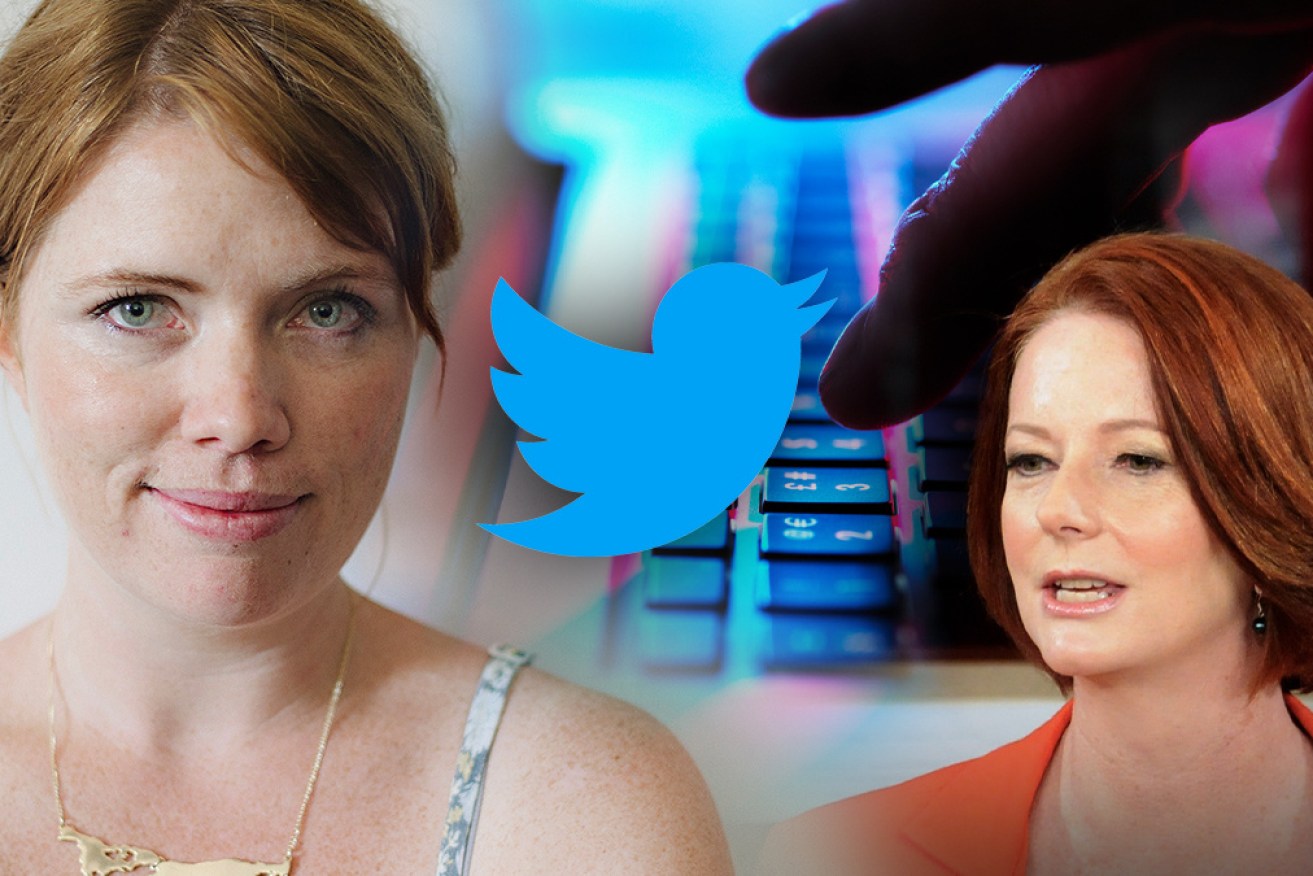Messages of malice: Clementine Ford makes the case for exposing online trolls


Clementine Ford on trolling, sexism in the media and Julia Gillard. Photo: Getty / TND
Clementine Ford has dealt with more than her share of online trolling, but the noted feminist and author is fighting back by naming and shaming abusers.
Ford told The New Daily that perpetrators of online abuse rely on secrecy and intimidation, and that telling victims to “get off the internet” was unrealistic and damaging.
“What happens online can be incredibly secretive and could potentially be very shocking to you in terms of the person you know, and understand, and love, the one that you see in your home everyday – and the way they may be behaving online,” she said.
“Online dynamics remove that element of face-to-face empathy that keeps a lot of our behaviour in check.”
It is important that “people of a certain generation understand that there is no distinction between online and offline lives anymore”, Ford said.
“Often times, particularly in response to trolling, people will say things like, ‘Well, just get off the internet’, which is a victim-blaming response,” she said.
It’s a completely impractical suggestion in a world in which the internet and the online world is completely incorporated into the fabric of society.”
Speaking recently to Julia Gillard on the former PM’s podcast, A Podcast of One’s Own, Ford (who also hosts her own podcast, Big Sister Hotline) discussed the similarities in the vitriol the two women have received throughout their careers, and the differences in the way they navigated it.
Ms Gillard, who occupied Australia’s top job between 2010 to 2013, said her career limited her ability to respond and acknowledge the death threats, rape threats and rampant misogyny she suffered.
But he experiences aren’t isolated.
Studies have also shown that women in politics (particularly women of colour) are overwhelmingly more likely to receive online abuse than their male counterparts.
One US study, for example, found that female Democratic politicians in 2020 received ten times the abusive comments that their male Democratic colleagues did.
The same study showed the abuse directed at women on Twitter and Facebook was more likely to attack their physical appearance and perceived lack of competence, while their male counterparts were targeted for their political stances.
Exposing online trolls
Ford has become known for her willingness to expose, name and shame the (often male) individuals who appear in her private messages.
Speaking to The New Daily, Ford explained that while it was not a safe or viable option for all women who experience online abuse, she felt it allowed her to shine a light on the often dark and sinister inboxes of women in the media.
“I started doing it because I felt like so much of what drives this behaviour is the sense of anonymity,” Ford said.
“People will go to your private messages and bombard you with abuse relying on the fact that you will be quiet about it.
If I have to bear the brunt of your abuse, if these are the words you’re prepared to say to me privately, then these are words you should be prepared to stand by publicly.
Bushy eyebrows and death threats
Ford also points out that the misogyny and gendered vilification Gillard received as Australia’s first female Prime Minister wasn’t isolated to individual online trolls, but extended well into the media landscape.
“People can make the argument that, ‘Oh, well John Howard was lampooned when he was PM, and people bagged out his eyebrows’, as if somehow making fun of bushy eyebrows on a politician is the same as incessant commentary about women’s bodies, women’s sexuality, what should happen to those bodies.”
- Related: There’s a big problem with Murdoch media no one is talking about – how it treats women leaders
In her book, Ms Prime Minister: Gender, Media and Leadership, political scientist Linda Trimble analysed political media coverage and found Gillard’s looks, childlessness and marital situation were relentlessly targeted by the Australian press.
Those seeking a more contemporary example, Ford suggests, needn’t look further than the recent viral opinion piece written by The Wall Street Journal’s Joseph Epstein in which he mocks and belittles Dr Jill Biden’s qualifications.
“People are often wilfully dismissive of these covert methods, and we need to be more aware, and challenging ourselves to be more critical of our own language, and be more critical of the language that we hear,” Ford said.
“No one is saying that women should be above criticism, but the language that is made available to people to apply that criticism is key.”








